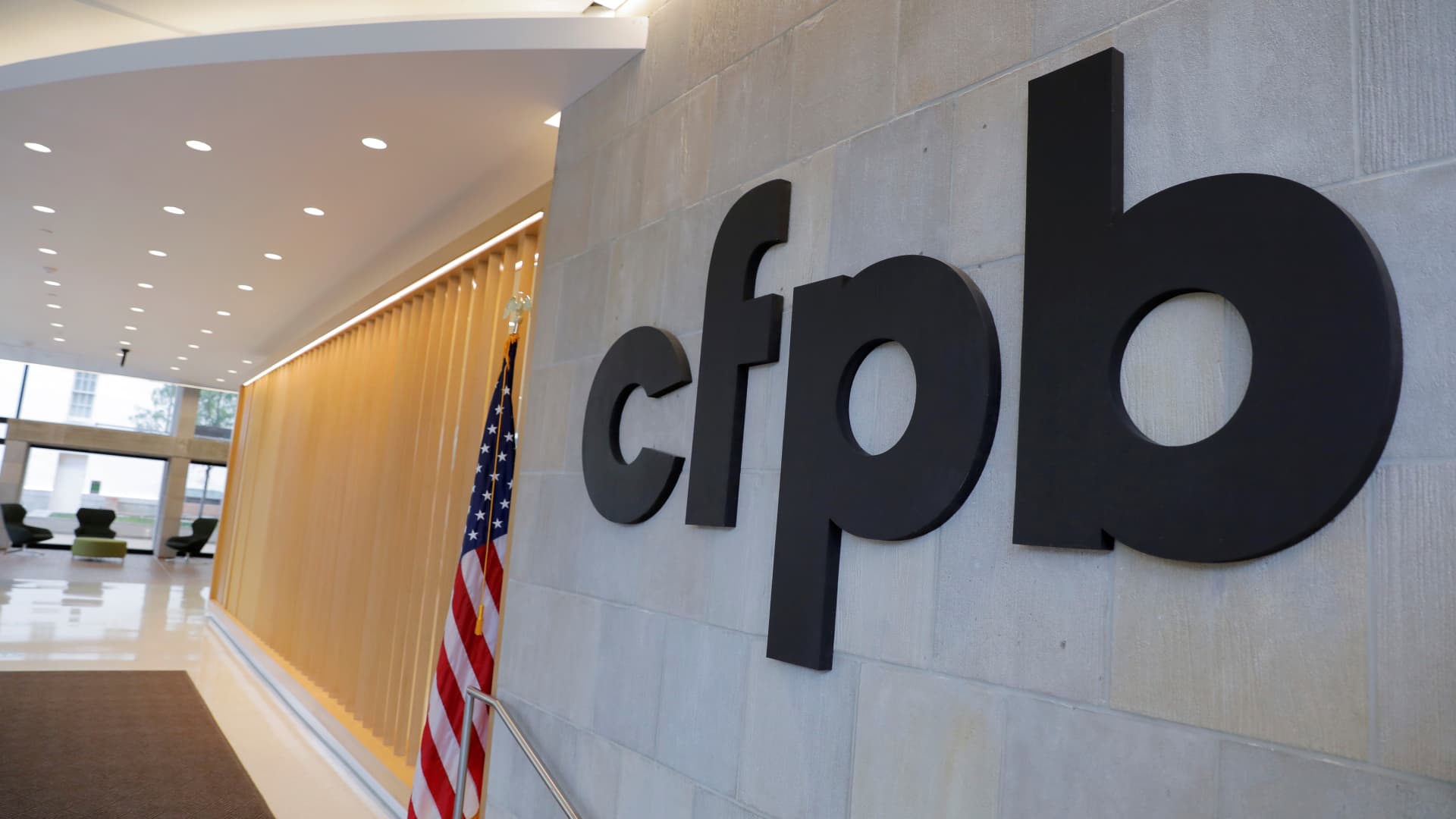Consumer Financial Protection Bureau targets excessive credit card fees in new rule proposal
The Consumer Financial Protection Bureau aims to reduce excessive credit card late fees by as much as $9 billion per year with a new rule proposal.

Signage at the Consumer Financial Protection Bureau (CFPB) headquarters in Washington, D.C.
Andrew Kelly | Reuters
WASHINGTON — The federal government's consumer protection watchdog proposed a new rule on Wednesday to ban excessive credit card late fees, potentially reducing them by as much as $9 billion per year.
Congress banned exorbitant credit card fees under the Credit CARD Act in 2009, but an immunity provision instituted by the Federal Reserve Board of Governors enabled card companies to dodge enforcement standards, said Rohit Chopra, director of the Consumer Financial Protection Bureau.
"Over a decade ago, Congress banned excessive credit card late fees, but companies have exploited a regulatory loophole that has allowed them to escape scrutiny for charging an otherwise illegal junk fee," Chopra said. "Today's proposed rule seeks to save families billions of dollars and ensure the credit card market is fair and competitive."
Late fees cost American families around $12 billion a year in addition to billions in interest, the CFPB said. Credit card issuers that hike fees with inflation are also protected by immunity clauses, according to Chopra.
The CFPB rule proposed Wednesday would lower the amount consumers can owe for late fees under the immunity provision to $8 from as much as $41, end the automatic annual inflation adjustment for the provision and cap late fees at 25% of the minimum payment owed by the cardholder.
The CFPB will seek public comment on other potential changes, including whether to make the proposed rule apply to all credit card penalties, eliminate the immunity provision altogether, create a 15-day courtesy period for credit card holders before the assessment of late fees and require credit card companies to offer autopay services as a condition of immunity provisions.
This is a developing story. Please check back for updates.

 Aliver
Aliver 































